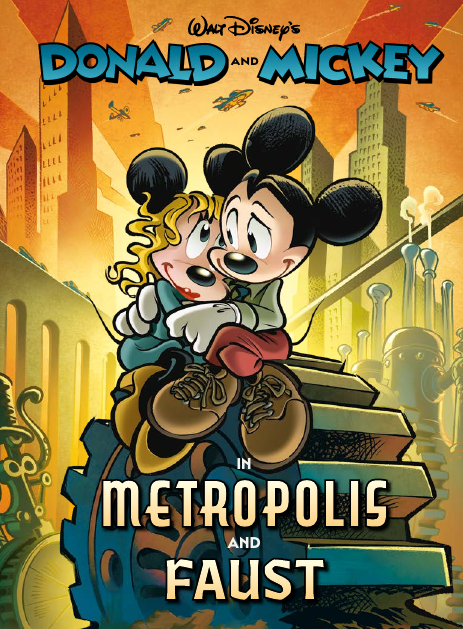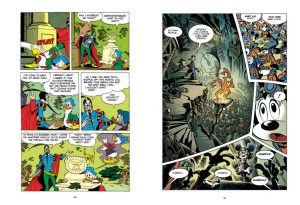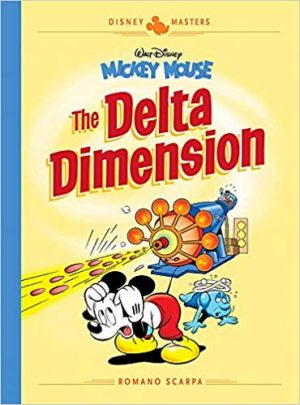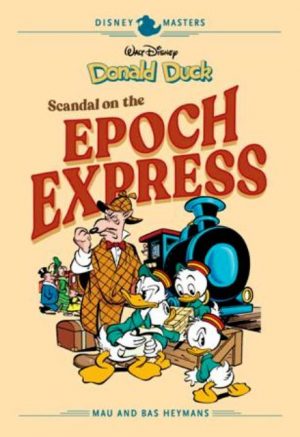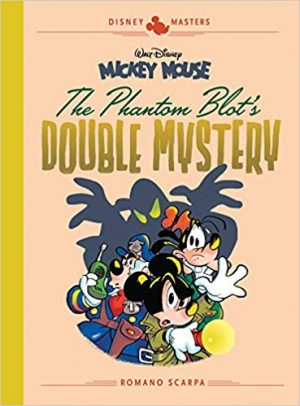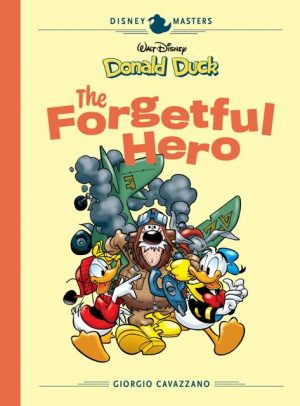Review by Ian Keogh
While Donald Duck and Mickey Mouse are now all-but unknown to American children, they’re embraced by every new generation of children in Europe, where new characters and situations have been introduced for decades, continuing to build their worlds. A relatively infrequent sub-genre is that of Italian creators slotting Disney characters into adaptations of classic literature, and some of these are now being translated by Fantagraphics, with three volumes issued to date.
Luciano Bottaro and Carlo Chendi set the ball rolling in 1958, when they cast Donald in the role of Goethe’s Faust. All the adaptations feature accompanying articles telling the original stories, in this case a man tempted by a devil with the promise of fulfilment while alive if they serve the devil after death. The original material is dark, but Bottaro substitutes a plot about a serum of youth and draws this as if Carl Barks. He has Donald telling his nephews the story of ancestor Donaldus Faust, which also involves versions of Uncle Scrooge, the Beagle Boys, Daisy and Witch Hazel.
At 72 pages it’s an epic, if meandering in order for Bottaro to switch locations and include the likes of dragons and devils, but stands up as entertainment, and has a great twist involving Daisette’s wedding.
Over forty years later Bottaro alone produced a sequel, his cartooning considerably different in 2000, unrestrained by the discipline of Barks. The same applies to the story, which spends considerable time away from the ducks, concentrating on Hades, Mephistopholes and Witch Hazel, but it’s not as satisfying for being more obvious slapstick.
‘Moustropolis’ opens the selection, and dates from 2017, adapting Fritz Lang’s cinematic dystopia. Mictor inherits Mouster Industries, and subsequently discovers how it is he and the city’s elite can lead such pampered lives. Francesco Artibani’s cartooning is greatly distanced from the traditional Disney style, supplying expressive art in claustrophobic panels and vertigo-inducing scenes, echoing the shadows of the original film. He revels in designing retro-future technology, and there’s extraordinary life to the characters, and plenty of them in the factory sequences.
Moreso than Bottaro, who just uses Faust as an inspiration, Artibani delivers a credible version of Metropolis not falling far short of the original’s drama. Despite the Mickey and Donald stories providing very different moods they both hit with memorable art, and the latter also applies to Bottaro’s sequel, which makes for a extremely appealing package for fans of the classic Disney personalities.
